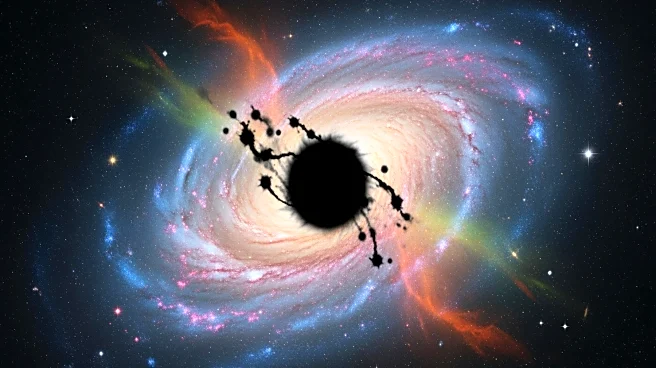What's Happening?
Recent research challenges the long-held belief that the universe will expand indefinitely. Scientists have proposed that the cosmological constant, a key factor in the universe's expansion, may not be constant. This new understanding suggests the universe could
end in a 'Big Crunch' rather than expanding into oblivion. The study, published in the Journal of Cosmology and Astroparticle Physics, estimates the universe's lifespan at about 33 billion years, with 19 billion years remaining before a potential contraction begins.
Why It's Important?
This research could fundamentally alter cosmological models and our understanding of the universe's future. If the cosmological constant is indeed changing, it may require a reevaluation of theories regarding dark energy and the universe's expansion. This shift could impact various scientific fields, from theoretical physics to astronomy, and influence future research priorities and funding.
What's Next?
The study's authors emphasize the need for further verification of their findings through additional observations and experiments. The Dark Energy Survey and the Dark Energy Spectroscopic Instrument are expected to play crucial roles in testing these new theories. Confirmation of a changing cosmological constant could lead to a paradigm shift in cosmology, prompting new hypotheses about the universe's ultimate fate.
















